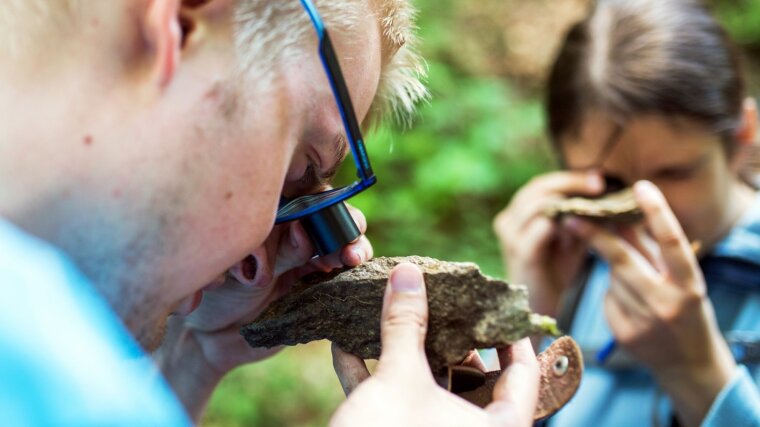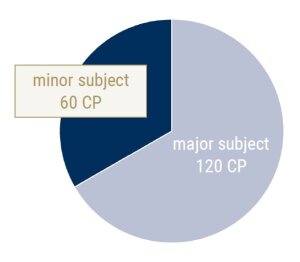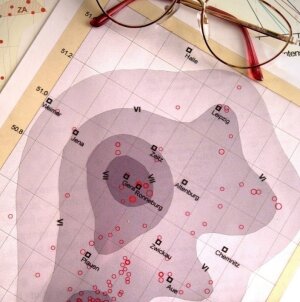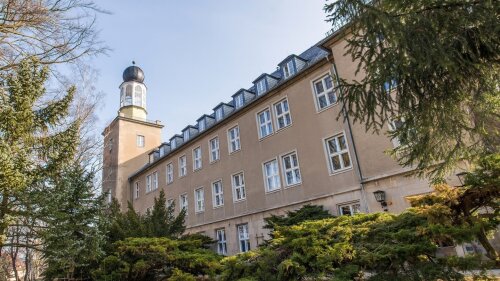
Programme content
Did you know that many volcanoes would not be able to spit fire if it weren’t for water? Did you know there is a lake on an Australian island where the water is completely pink? And did you know some fossils hold a wide range of secrets that give us a glimpse of the past? Our planet is just full of wonders! The study of geology looks closely at the structure and development of the earth. The analysis of rocks, the observation of processes and the creation of physical and chemical models enable us to develop geological laws.
If you take ‘Geology’ as a minor subject, you will acquire the basic knowledge needed to make connections between geoscientific and socio-political issues. These issues are playing an increasingly prominent role in society, especially when it comes to supplying drinking water and energy resources, dealing with mining damage and assessing geohazards such as earthquakes or tsunamis. Your expertise as a geologist will therefore also be required in several areas of the humanities and social sciences.
Structure
minor subject
Graphic: Sophie BartholomeThe bachelor's degree is the first professional qualification. The standard period of study is a total of six semesters, during which various forms of courses (e.g. seminars, lectures or exercises) are offered for the individual modules.
A multi-subject bachelor’s programme consists of a major subject with 120 credit points (CP for short; 1 CP = 30 hours for attendance, preparation and follow-up work, private study, assessed coursework and examinations) and a minor subject with 60 CP.
The compulsory modules of this study programme will teach you geoscientific methods and subject-specific basics. The elective modules will give you the opportunity to explore a wide range of sub-areas, such as Sedimentology (formation of deposits), Tectonics (structure and movements in the earth’s crust) and Palaeontology (living beings from the geological past).
How might your degree programme shape up?
The following table shows the possible structure of your course with ‘Geology’ as your minor subject:
| Semester | Modules | |
| 1st | Compulsory module: Introduction to Geosciences (9 CP) |
|
| 2nd | Compulsory module: Good Scientific Practice and Scientific Conduct (3 CP) |
Required elective module: Surface Processes (7 CP) |
| 3rd | Compulsory module: Introduction to Geological Maps (6 CP) |
Required elective module: Hydrogeology (6 CP) |
| 4th | Required elective module: Structural Geology (6 CP) |
|
| 5th | Required elective module: Quaternary Geology and Soil Science (6 CP) |
Required elective module: Geochemistry and Petrology (6 CP) |
| 6th | Required elective module: Applied Geology (5 CP) |
Required elective module: Regional Geology of Central Europe (6 CP) |
Abbreviations: CP = credit points
You can choose from a wide range of required elective modules for the minor subject; 42 CP must be taken in total.
More detailed information can be found in the module catalogue for the study programme [in German]External link.
Why study in Jena?
This map shows the frequency and severity of earthquakes in East Thuringia.
Image: Jan-Peter Kasper (University of Jena)- Excellent teaching: The offers a wide range of courses in Geology. A variety of technical links can also be made to mineralogy and geophysics.
- Lots of practical content: As special emphasis is placed on practical training, a large amount of your studies will be spent in the field and in the laboratory.
- Variety: Thanks to Jena’s location at the heart of Germany, lots of field trips to interesting destinations are included in the study programme.
- Adventures abroad: Our University has a global network of partner universities.
What can you do after your studies?
Areas of employment for graduates
- scientific journalism / publishing
- science and natural history museums
- government agencies or environmental protection institutions
Please note: Your career opportunities will largely depend on your major subject. By studying an unusual combination of subjects, you will qualify for special niche positions. However, purely geoscientific occupations will generally be out of bounds with a degree in the minor subject.
Downloads and links for the degree programme
What are we looking for in prospective students?
- good knowledge of mathematics, physics and chemistry
- an interest in the issues studied in the related disciplines of geography, prehistory, early history and archaeology
- an interest in science and research
- enjoyment of fieldwork and laboratory activities
Admission requirements
-
University entrance qualification
A university entrance qualification, such as a general secondary school leaving certificate, is required for admission onto the study programme.
More information on university entrance qualifications can be found here.
-
Language requirements
The study programme is taught in German. You must therefore have a very good command of German at the start of the study programme.
Proficiency in English is required; students must submit evidence of their language skills (except German—see above) when registering the subject of their bachelor’s thesis at the latest.
Contacts
Room H310
Burgweg 11
07749 Jena
Google Maps site planExternal link
Opening hours:
by arrangement
Bachstraße 18k
07743 Jena
Telephone hours:
Mondays and Fridays (9:00 – 11:00)
Wednesdays (13:00 – 15:00)
The ASPA is primarily responsible for students in the Faculty of Social and Behavioural Sciences, the Faculty of Arts and Humanities, and the Faculty of Theology.
Postal address:
Akademisches Studien- und Prüfungsamt
Fürstengraben 1
07743 Jena
University Main Building / SSZ
Fürstengraben 1
07743 Jena
Google Maps site planExternal link
Office hours:
The Central Student Advisory Service will be closed from 22 December 2025 to 2 January 2026. We will be happy to assist you again from 5 January 2026!
We offer consultations in person, by telephone, and via Zoom. You can make an appointment by calling us on +49 3641 9-411111 (Mondays to Fridays from 9:00 to 11:00) or outside these office hours on +49 3641 9-411200. You can also use our remote help desk.
Consultation hours:
Mondays, Tuesdays, Thursdays and Fridays (9:00 to 12:20), Tuesdays (14:00 to 18:00), and Wednesdays and Thursdays (14:00 to 16:00).
Video chat: To the video chat – Zoom Videochat ZeitenMondays to Fridays (12:30 to 13:00) Password ZSB2020 Data protection informationpdf, 101 kb
University Main Building, Room E065
Fürstengraben 1
07743 Jena
Google Maps site planExternal link
Opening hours:
Information Desk (UHG; Room E0.65)
Mondays (10:00 – 12:00)
Tuesdays (13:00 – 15:00)
Wednesdays (10:00 – 12:00)
Thursdays (13:00 – 15:00)
Fridays (10:00 – 12:00)
You can also use our remote help desk at
www.uni-jena.de/service-ssz
or send us your enquiries by post.
Telephone hours:
Mondays to Fridays
(9:00 – 11:00)
Postal address:
Friedrich-Schiller-Universität Jena
Studierenden-Service-Zentrum
07737 Jena
University Main Building
Fürstengraben 1
07743 Jena
Google Maps site planExternal link


